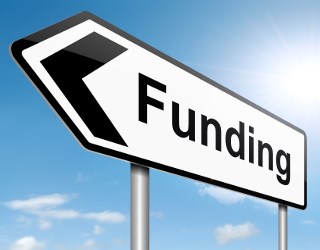 Consumer Goods & Services
Consultancy: Project Evaluation, Building Resilience to Climate Change in PNG-IC/PNG/019/2022
Consumer Goods & Services
Consultancy: Project Evaluation, Building Resilience to Climate Change in PNG-IC/PNG/019/2022
Consultancy: Project Evaluation, Building Resilience to Climate Change in PNG-IC/PNG/019/2022
Consultancy: Project Evaluation, Building Resilience to Climate Change in PNG-IC/PNG/019/2022 has been closed on 04 Mar 2022. It no longer accepts any bids. For further information, you can contact the United Nations Development Programme
Bellow, you can find more information about this project:
Location: Papua New Guinea
General information
United Nations Development Programme
Consumer Goods & Services
Closed
Timeline
14 Feb 2022
04 Mar 2022
Not available
Contacts
Description
| Consultancy: Project Evaluation, Building Resilience to Climate Change in PNG-IC/PNG/019/2022 | ||||||||||||||||||||||||||
|---|---|---|---|---|---|---|---|---|---|---|---|---|---|---|---|---|---|---|---|---|---|---|---|---|---|---|
| Procurement Process : | IC - Individual contractor | |||||||||||||||||||||||||
| Office : | Port Moresby, with travel to other locations-PNG - PAPUA NEW GUINEA | |||||||||||||||||||||||||
| Deadline : | 04-Mar-22 | |||||||||||||||||||||||||
| Posted on : | 14-Feb-22 | |||||||||||||||||||||||||
| Development Area : | SERVICES | |||||||||||||||||||||||||
| Reference Number : | 88097 | |||||||||||||||||||||||||
|
Link to Atlas Project : 00100578 - Building Resilience to Climate Change in Papua New Guine | ||||||||||||||||||||||||||
|
Documents :
ANNEX-1-ToR-BRCC_Project Evaluation-IC-PNG-019-2022 ANNEX 2 - INDIVIDUAL CONSULTANT GTC ANNEX-3-IC Offerors Letter to UNDP Confirming Interest and Availability ANNEX-4-Statement of Health- Individual Contractor | ||||||||||||||||||||||||||
| Overview : REFERENCE: IC/PNG/019/2022 TERMS OF REFERENCE Consultancy: Project Evaluation Location: Port Moresby, with travel to other locations in Papua New Guinea Type of Contract: Individual Contract (IC) – International and National Project: Building Resilience to Climate Change in PNG Languages Required: English Starting Date: 21st March 2022 Duration of Contract: 40 working days – March - April 2022 Closing date: 4th March 2022 Please access the UNDP Jobsite and look for IC with reference IC/PNG/019/2022 to apply for National or International Prject Evaluation consultancy announcement Background and Context Despite impressive economic growth over the last decade, Papua New Guinea has struggled to translate this increased opportunity into comparable increases in its development indicators. High transaction costs, limited supply chain options and outdated infrastructure and climate risks and climate hazards are the main development challenges that large parts of Papua New Guinea’s population are experiencing. Considering these issues, Papua New Guinea was selected as one of the pilot countries to participate in the Pilot Program for Climate Resilience (PPCR). The programme aims to help countries transform to a climate resilient development path, consistent with national poverty reduction and sustainable development goals. This Project aims to increase Papua New Guinea’s resilience to the impacts of climate change at the community level. PNG has already witnessed a warming with annual and seasonal average air temperatures over the last sixty years (1950-2009). Climate change projections include an increase in the intensity and frequency of days with extreme heat and extreme rainfall. Inter-annual variability in PNG’s rainfall is strongly influenced by the El Niño Southern Oscillation (ENSO) phenomenon. During El Niño years, droughts affect the normally wet tropical climate of the country. The 1997 and 2016 ENSO events brought intense drought conditions and subsequent food shortages in parts of PNG, among them island and atoll areas. This affected over 500,000 people in 1997 and over 2.5 million people in 2016 (EM-DAT). As a result of continued climate change, such past extreme El Niño events are projected to increase in frequency, increasing the likelihood of more frequent droughts and frosts, and associated impacts on local agricultural production and food shortages in multiple regions of PNG. Many remote and subsistence communities in atoll and the islands of PNG are particularly vulnerable to these consequences of climate variability and change. In addition, majority of the infrastructure, urban centres, rural populations and businesses are situated in zones of high exposure to climate change impacts - flood prone valleys and river basins, coastal areas and low-lying islands or steep highlands susceptible to landslides. During the 21st century, PNG is expected to experience increasing impacts due to climate change, including an increase in annual and seasonal mean rainfall levels, higher land and sea surface temperatures and higher mean sea levels. These changes in climate are expected to cause the following multiple hazards and impacts in PNG:
In this context, these 24 island and atoll communities identified in the four target provinces of East New Britain, Milne Bay, Madang, Morobe, Manus and the Autonomous Region of Bougainville (AROB) for this project are amongst those most vulnerable to natural climate induced hazards. From the 24 sites, UNDP covers 21 sites while CCDA covers 3 sites known as batch zero sites. According to PNG’s National Compatible Climate Development Management Policy (NCCDMP), the four target provinces and AROB are amongst those most vulnerable to natural and climate induced hazards almost making them uninhabitable. To increase Papua New Guinea’s resilience to the impacts of climate change at the community level this project will support efforts to improve the access of target communities to the resources and knowledge that will assist them to develop fit-for-purpose adaptation measures. These measures will not only aim to build disaster preparedness, but they will also support efforts to improve food and water security, as well as the general health and wellbeing of communities. In doing so, reduction in vulnerability to the impacts of climate change will be achieved, including ultimately improved socio-economic mobility of beneficiaries. Among the key impediments that this Project will endeavour to address are:
To manage the impediments, the project proposes the interconnected outcomes, that aim to effectively support resilient initiatives for vulnerable communities. OUTCOME: Improved capacities of vulnerable islands/atoll communities, government agencies, and civil society to plan and respond to the impacts of Climate Change Output 1: Climate change and vulnerability assessments carried out and adaptation plans developed for target communities (21 islands and atolls for all Output 1 project activities and 19 islands and atolls for CCVA alone. Output 2: Sustainable fishery eco-systems and food security investments piloted in 9 vulnerable island and atoll communities Evaluation Objective The objective of the evaluation is two-fold: • to evaluate the effectiveness of the project as implemented and as agreed to by ADB, GoPNG and UNDP; and • to use the findings of the evaluation to inform ADB’s support to further initiatives to enhance or scale up community resilience in Papua New Guinea, to determine whether the project, as currently designed and being implemented, remains fit-for-purpose. The evaluation is timely given that the project is set to conclude at the end of June. The evaluation will further determine and identify whether current project objectives and outcomes remain relevant given PNG’s unique geo-climatic conditions and experiences. More broadly, the project will ensure close ongoing alignment with CCDAs Climate Change Development Strategy (CCDS) which is aligned to the national development frameworks being Vision 2050, Development Strategic Plan (2010 – 2030), MTDP III and STaRs. The review will be conducted through close cooperation with UNDP and the GoPNG through the CCDA. This is to ensure that the review fully utilises UNDP and CCDA’s current extensive local knowledge and networks. Evaluation Approach and Methodology The evaluation will utilise a combination of desk review and in-depth interviews (Key Informant Interviews – KII) and Focus Group Discussions (FGDs) with key stakeholders in Port Moresby and the project priority provinces of East New Britain, Manus, Milne Bay, Morobe and the Autonomous Region Of Bougainville (ARoB). The evaluation will be conducted over approximately one month with fieldwork between March and April. The team will consult with relevant stakeholders, including but not limited to various levels of Government (National and Sub – National), target community leaders and beneficiaries, Non-Government Organizations, civil society, faith-based organizations, and other development partners. Desk Review The evaluation team will review all sources of relevant information including, but not limited to, the following:
Evaluation design The evaluation will utilise a non-experimental design, which examines the project progress before and after the referendum, in line with the OECD DAC evaluation criteria and then also makes forward looking recommendations for UN implementation in ARoB. Beyond document review, data collection will include key informant interviews andfocus group discussions (FGDs) with partners, and stakeholders (government, non-government, UN and other donors and development partners) as well as both project direct and indirect beneficiaries. Clear ethical guidelines should be followed and implemented, obtaining consent from any individuals interviewed or included in FGDs. The evaluation should be gender and youth responsive, as outlined in the evaluation objectives, using a participatory methodology. Any limitations in the design should be clearly stated and data should be triangulated to enhance the robustness of the data. Evaluation Scope This final review will assess and provide recommendations on overall project performance based on the following five key areas: Relevance:
Effectiveness:
Efficiency:
Sustainability:
Did the projects have an exit strategy and did they actively look for opportunities for catalytic effects, financial or otherwise? Gender Equality, Disability and Human Rights:
Evaluation Deliverables The following deliverables are required as outlined: Inception Report
Presentation of Findings through PowerPoint
Draft Report
Final Report
The whole exercise is estimated to take 4 weeks but there is always flexibility to adjust as and when necessary. Evaluation Management The Project Evaluation will be executed under the management of the Evaluation Manager to be appointed by UNDP. Further support will be given by the reference group comprised of the representative of UNDP, UNDP BRCC Project and CCDA. Reporting The evaluator hired will report directly to the UNDP Evaluation Manager and the Reference Group. Institutional Arrangement (i) Team Composition A team of two independent evaluators will conduct the evaluation. One is an International who will play a team leader role with experience and exposure to evaluating Climate Resilience Projects across Asia and the Pacific Region. The other is the team expert, who is a national. The Team Leader will be responsible for the overall assessment of the project starting with the preparation for the evaluation, presentation of the findings, development of the draft report and the final report. The Team expert will report to the team leader and support the Team Leader in the entire assignment. The individuals must be specialized in evaluation, research and surveys (design, tools, data collection & analysis), preferably in the field of climate change adaptation or climate resilience with good knowledge of and networks in Papua New Guinea. (ii). Education, Experience & Competencies of International Consultant Education:
Experience:
Competencies:
(iii). Education, Experience & Competencies of National Consultant Education:
Experience:
Competencies:
(iv) Reporting The Team Expert will report to the Team Leader. The Team Leader and the Team Expert will report directly to the Evaluation Manager who is in consultation with the Evaluation Reference Group. Deliverables, Price Proposal & Payment Schedule Duration of work The contract days are 40 working days which is 8 weeks for the Team Leader and 35 working days or 7 weeks for the Team Expert . The work schedule proposes the duration of work within this timeframe immediately after the contract is signed. The work is estimated to commence no later than 21 March 2022. The contract price is a fixed price based on the results, with the length of service being approximate. The budget submission should include all costs to allow the implementation of activities provided for in Sections C and F, such as professional fees for team members, travel expenses, attachments, multiplication of survey questionnaires, etc. The payment schedule will be directly related to the deliverable submissions as illustrated in the table below:
Evaluation Cumulative analysis The proposals will be evaluated using the cumulative analysis method with a split 70% technical and 30% financial scoring. The proposal with the highest cumulative scoring will be awarded the contract. Applications will be evaluated technically, and points are attributed based on how well the proposal meets the requirements of the Terms of Reference using the guidelines detailed in the table below: When using this weighted scoring method, the award of the contract may be made to the individual consultant whose offer has been evaluated and determined as: a) Responsive/compliant/acceptable, and b) Having received the highest score out of a pre-determined set of weighted technical and financial criteria specific to the solicitation. * Technical Criteria weighting; 70% * Financial Criteria weighting; 30% Only candidates obtaining a minimum of 49 points in the Technical Evaluation would be considered for the Financial Evaluation. Documents to be included when submitting Consultancy Proposals The following documents may be requested: a) Duly executed Letter of Confirmation of Interest and Availability using the template provided by UNDP. b) Signed P11, indicating all experience from similar projects, as well as the contact details (email and telephone number) of the Candidate and at least three (3) professional references. c) Brief description of why the individual considers him/herself as the most suitable for the assignment. Highlights of the relevant expertise and understanding of the TORs. Details of approach and a draft methodology proposed for the overall data collection based on the evaluation questions and work plan outline with composition of the proposed team.
Lump-sum contracts The financial proposal shall specify a total lump-sum amount, and payment terms around specific and measurable (qualitative and quantitative) deliverables (i.e. whether payments fall in instalments or upon completion of the entire contract). Payments are based upon output, i.e. upon delivery of the services specified in the TOR. To assist the requesting unit in the comparison of financial proposals, the financial proposal will include a breakdown of this lump-sum amount (including travel, living expenses, and number of anticipated working days). Note: Applications without i) financial offer, ii) P11 form and iii) Documents mentioned under Technical Proposal will NOT be considered for evaluation.
Financial proposal should be on provided format (i.e. Annex 3- OFFEROR’S LETTER TO UNDP);
Firms are not eligible for this consultancy assignment (open only for national individual consultants). Incomplete application will not be considered, it will be disqualified automatically. Please complete the Statement of Health form and submit along with proposal
ANNEX ANNEX 1- TERMS OF REFERENCES (TOR) [This Document] ANNEX 2 - INDIVIDUAL CONSULTANT GENERAL TERMS AND CONDITIONS ANNEX 3- FINANCIAL PROPOSAL TEMPLATE ANNEX 4- STATEMENT OF HEALTH- INDIVIDUAL CONTRACTOR Interested individual consultants must submit the following documents/information to demonstrate their qualifications. Please group them into one (1) single PDF document as the application only allows to upload maximum one document
| ||||||||||||||||||||||||||
Receive Daily Tenders and Grants notifications
Subscribe nowFeatured tenders
-
 Tender
24 Apr 2022
Papua New Guinea
RFQ for the Provision for Accommodation, Conference Room and food for participants of the National Adaptation Plan Regional Capacity Development Training, Madang Momase Region
United Nations Development Programme
Tender
24 Apr 2022
Papua New Guinea
RFQ for the Provision for Accommodation, Conference Room and food for participants of the National Adaptation Plan Regional Capacity Development Training, Madang Momase Region
United Nations Development Programme
-
, Eurasian Development Bank, European Investment Bank, IADB - Inter American Development Bank 05 copy.jpg) Tender
26 Apr 2022
Papua New Guinea
RE-ADVERT/RFQ/PNG/004-2022_Provision of Fuel Supply to UNDP Project Vehicle Wabag, Enga Province Papua New Guinea,
United Nations Development Programme
Tender
26 Apr 2022
Papua New Guinea
RE-ADVERT/RFQ/PNG/004-2022_Provision of Fuel Supply to UNDP Project Vehicle Wabag, Enga Province Papua New Guinea,
United Nations Development Programme
-
, Eurasian Development Bank, European Investment Bank, IADB - Inter American Development Bank 02 copy.jpg) Tender
01 Mar 2022
Papua New Guinea
RE-RFP-PNG-004-2022-Climate Change MitigationRE-AD
United Nations Development Programme
Tender
01 Mar 2022
Papua New Guinea
RE-RFP-PNG-004-2022-Climate Change MitigationRE-AD
United Nations Development Programme
-
 Tender
21 Apr 2022
Papua New Guinea
IC/PNG/038-2022 International Consultant for Capacity Assessment and Training Development for Investigations Consultancy
United Nations Development Programme
Tender
21 Apr 2022
Papua New Guinea
IC/PNG/038-2022 International Consultant for Capacity Assessment and Training Development for Investigations Consultancy
United Nations Development Programme
-
 04 copy.jpg) Tender
21 Apr 2022
Papua New Guinea
IC/PNG/039 International Consultant for Capacity Assessment Training Development for Prosecutions Consultancy
United Nations Development Programme
Tender
21 Apr 2022
Papua New Guinea
IC/PNG/039 International Consultant for Capacity Assessment Training Development for Prosecutions Consultancy
United Nations Development Programme
Get free access to our Tenders & Grants Database
Our service is free of charge and will always be
Join NowDonors
-
 Asian Development Bank
Asian Development Bank
-
 EUROPEAN CENTRE FOR THE DEVELOPMENT OF VOCATIONAL TRAINING
EUROPEAN CENTRE FOR THE DEVELOPMENT OF VOCATIONAL TRAINING
-
 FOREIGN & COMMONWEALTH OFFICE
FOREIGN & COMMONWEALTH OFFICE
-
 HORIZON 2020
HORIZON 2020
-
 INTERNATIONAL FUND FOR AGRICULTURAL DEVELOPMENT
INTERNATIONAL FUND FOR AGRICULTURAL DEVELOPMENT
-
 LUX-DEVELOPMENT
LUX-DEVELOPMENT
-
 UNION ECONOMIQUE ET MONETAIRE OUEST AFRICAINE
UNION ECONOMIQUE ET MONETAIRE OUEST AFRICAINE
-
 UNITED NATIONS EDUCATIONAL SCIENTIFIC & CULTURAL ORGANIZATION
UNITED NATIONS EDUCATIONAL SCIENTIFIC & CULTURAL ORGANIZATION
-
 US DEPARTMENT OF STATE
US DEPARTMENT OF STATE
-
 UNITED STATES AGENCY FOR INTERNATIONAL DEVELOPMENT
UNITED STATES AGENCY FOR INTERNATIONAL DEVELOPMENT